Playing Through Pain: Katoa’s Ordeal Renews Calls for Better Protection of Pacific Athletes
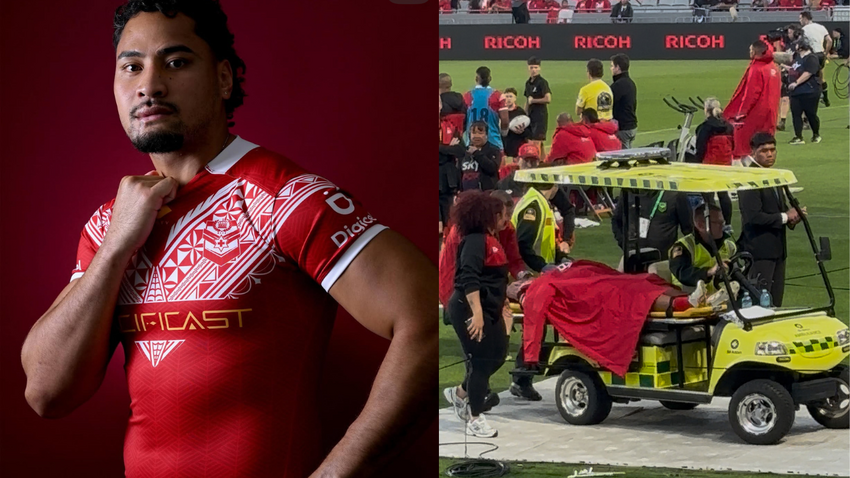
Tongan second-rower Eliesa Katoa’s condition on Sunday night at Eden Park has sparked serious questions about how player safety is managed and whether Pacific players’ wellbeing is truly being prioritised.
According to Code Sports, six teammates and staff had to help Katoa off the sideline before he was fitted with an oxygen mask and taken into the dressing rooms on a medicab. This came after he suffered three separate head knocks, one before the match even began.
The first hit came during the warm-up, when Katoa clashed heads with teammate Lehi Hopoate. Despite the visible impact, he did not undergo a Head Injury Assessment (HIA) and was still cleared to start the match.
In the 10th minute, he took another blow, an elbow from teammate Will Penisini, and was taken off for an HIA before being cleared to return to play. By the second half, he copped a third head knock while tackling a Kiwi player and was finally ruled out of the game.
Six teammates and support staff had to assist Katoa on the sideline, before the forward was fitted with an oxygen mask and taken into the dressing rooms on a medi-cab.
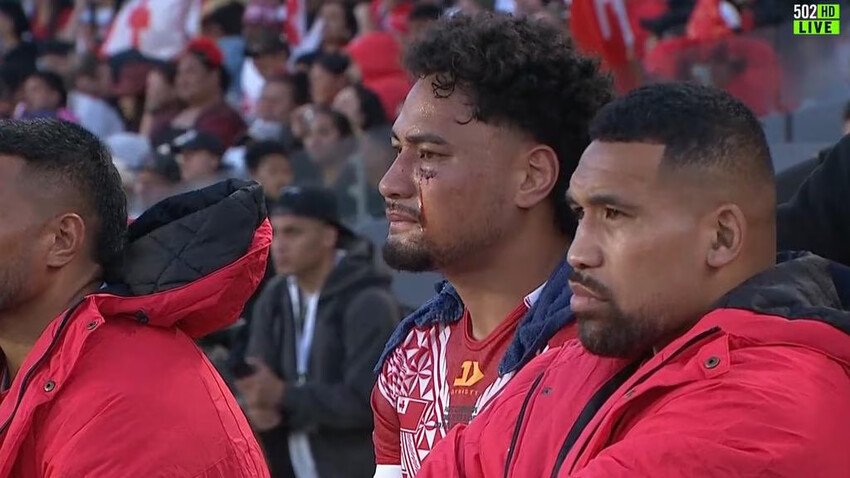
Questions were raised as to why Katoa played 41 minutes, given what happened.
Katoa copped three head knocks, including one in the warm-up. He passed one in-game, returning to the field in the first half but was off again, this time for good, when his head collided with a Kiwi player as he attempted to make a tackle in the second half.
After sitting on the sideline for 10-15 minutes, he fell ill and needed swift medical assistance.
At the post game press conference Tongan coach Kristian Woolf was adamant that due process was followed by the medical team at hand who cleared Katoa to continue to play.
“The doctors did the usual HIA, we’ve got two very experienced doctors there. They’ve done their usual HIA and he’s passed all that well…. my job isn’t to question doctors. They were both comfortable with him coming back onto the field, so I don’t think there’s anything there in terms of worrying about the process”
He added that “Unfortunately I think he’s copped a second hit that was quite heavy and there’s been a poor result out of that -he had two HIA’s in the game. He passed his HIA from the first one, then the second one he doesn’t go back on anyway. By all reports he was fine when he came back off, but he deteriorated after that.”
Katoa sat on the sideline for around 15 minutes before reportedly falling ill and requiring urgent medical attention. He was later rushed to hospital, with footage showing concern on the faces of his teammates and staff.
Tonga coach Kristian Woolf defended the handling of the situation, saying, “Everything has been done by the book” with the doctors having cleared Katoa to return to play.
The public have expressed their concern over the situation
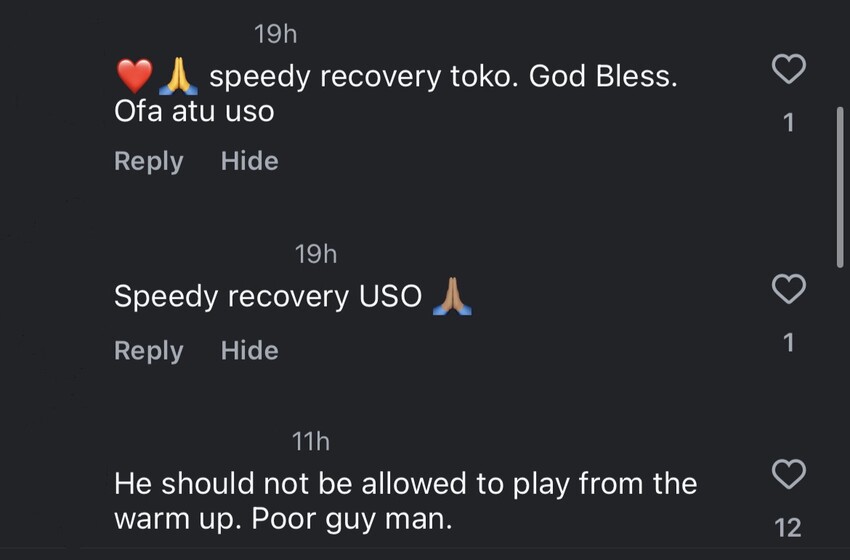
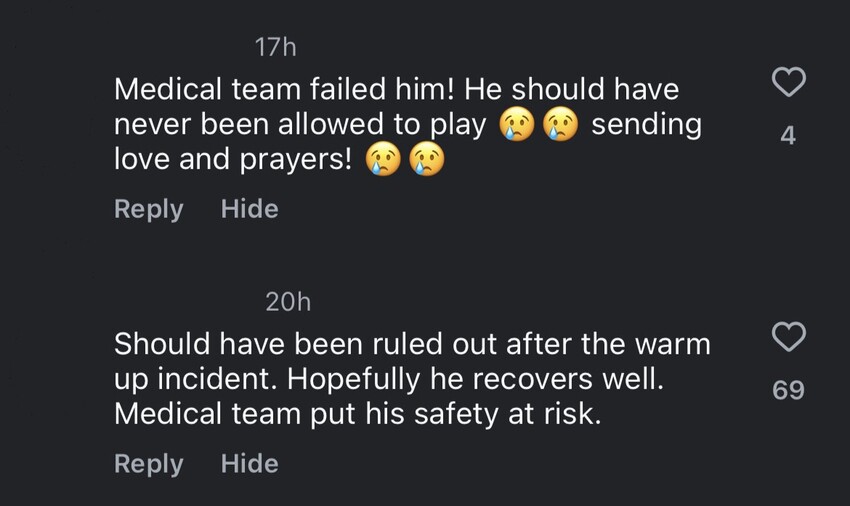
The decision to let Katoa continue raises urgent questions about protocols, accountability, and the duty of care owed to players, especially those representing Pacific nations, who already face unique pressures to play through pain and “show toughness” on the field.
The NRL’s independent doctor can only review incidents that occur during games, and as this incident took place beforehand, it was up to Tonga’s team doctors to review the situation- they declared him fit to play.
The NRL has since launched a review into Tonga’s handling of Eli Katoa’s repeated head knocks.
Katoa’s NRL club, the Melbourne Storm, say he is in a stable condition after surgery, with the club’s welfare officer Young Tonumaipea also travelling to Auckland to support Katoa, alongside his kainga.
In 2023, World Rugby integrated smart mouthguard technology to the Head Injury Assessment as part of new phase of global player welfare measures; protocols such as these may very well be the next step in ensuring better player safety.
Head injuries are not just part of the game, they are life-altering. What happened to Katoa should serve as a warning, not another line in the post-match injury report to help ensure better protection for Pacific players.
Katoa has taken to social media to thank those for reaching out.
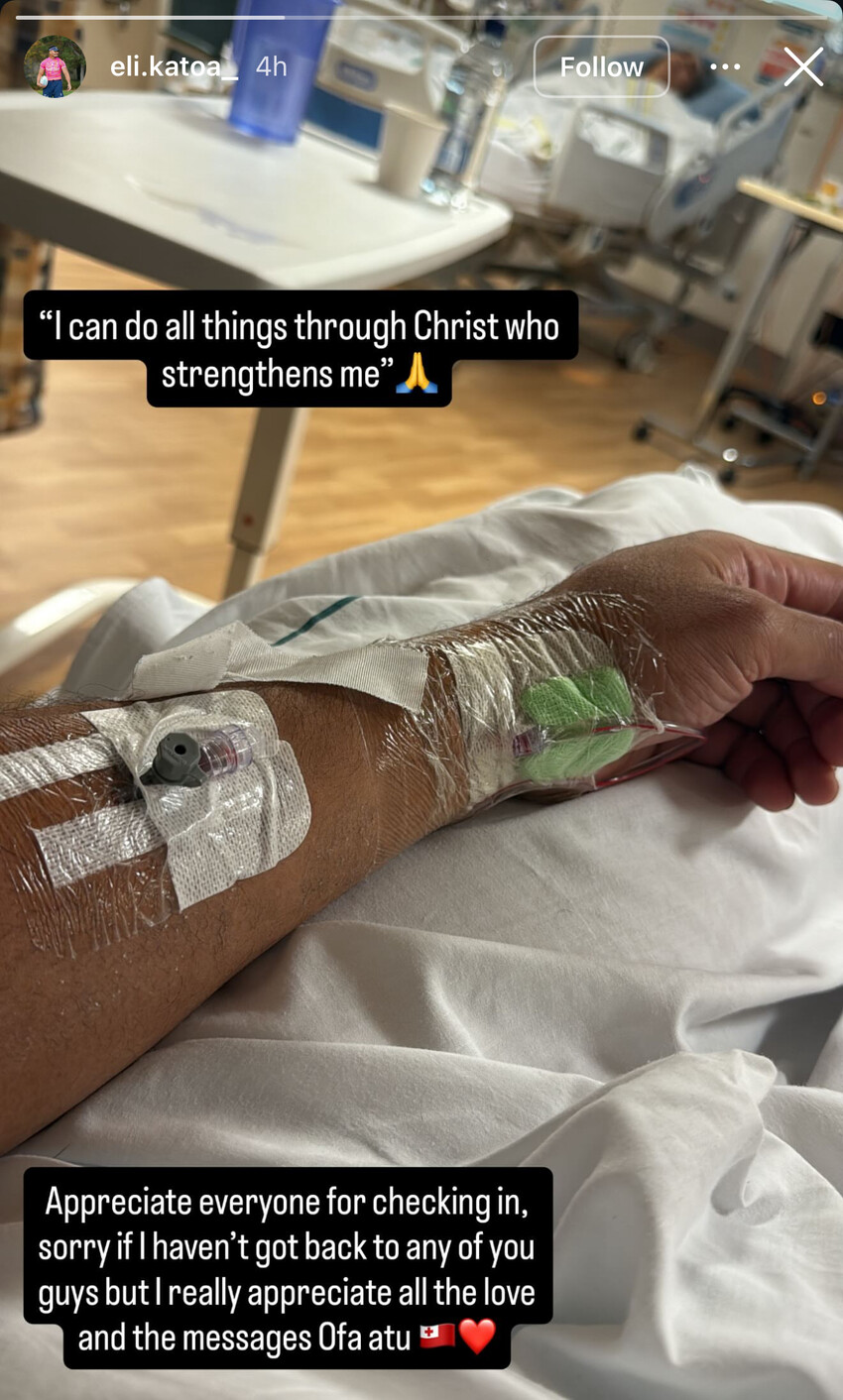
Katoa’s courage isn’t in question, but the system that allowed him to keep playing is.
